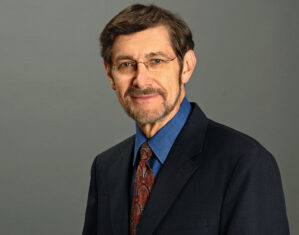 The Wharton School is sad to announce the passing of J. Scott Armstrong, an emeritus professor of marketing who was internationally recognized for his expertise in forecasting. He died September 28, 2023, after a long illness. He was 86.
The Wharton School is sad to announce the passing of J. Scott Armstrong, an emeritus professor of marketing who was internationally recognized for his expertise in forecasting. He died September 28, 2023, after a long illness. He was 86.
Armstrong spent more than 50 years as an influential and highly cited scholar who pioneered work on forecasting methods, which is the use of historical data to predict future trends. Among his achievements, he founded the Journal of Forecasting in 1982, published four books, and authored hundreds of papers and articles.
“Scott was one of the most well-known academics of his time, and he will continue to be remembered for his many scientific contributions,” Wharton Deputy Dean Nancy Rothbard said. “He left an indelible mark on the Wharton community, and he will be missed.”
Armstrong’s research flowed far outside the bounds of business and into the realms of education, climate change, politics, and other areas. In 2007, he famously challenged former Vice President Al Gore’s warnings about global warming with a scientific forecasting model known as “the climate bet.” He also co-founded PollyVote.com in 2004 to forecast U.S. presidential elections.
Armstrong won numerous awards and was frequently ranked among the best college professors in the country. He was a stickler for the scientific method and demanded that research to be based on empirically driven and scientifically objective principles.
“Scott was a scholar’s scholar,” said Wharton professor and marketing department chair Eric Bradlow. “My memory from all of our meetings was Scott asking, ‘What has the scholar found that is useful?’”
Armstrong joined Wharton shortly after earning his doctorate in management from the Massachusetts Institute of Technology in 1968. He also earned a master’s degree in industrial administration from Carnegie Mellon University, and two bachelor’s degrees from Lehigh University — one in applied science and the other in industrial engineering.
Born in Philadelphia, Armstong lived most of his life in the region except for a few years spent in Rochester, New York, working as an industrial engineer for Eastman Kodak. That’s where he met his wife, Kay Anderson. They married and moved to Pittsburgh and then Cambridge, Massachusetts, before returning to Philadelphia to work and raise their two daughters, Kathy and Jennifer.
Kay worked as a public health researcher. Scott was so enamored of his wife that he included that fact in his resume, writing that she “has read all of my books and papers and is my best editor.” Kay was by his side when he died.
“Scott and Kay were at every department event, were always kind, generous, positive, and inquisitive about everything,” Bradlow said. “Scott would come to my office often just to talk about his research and his philosophy of scholarship. He was extraordinarily kind to me, especially when I was a scholar new to the field and trying to find my way.”
Kathy Armstrong described her father as an intelligent man who was curious about everything and wanted to understand how systems operated. He also loved the theater, independent film, live music, and hosting dinner parties at home with his wife, where they would invite an interesting mix of guests to enjoy good food and lively conversation.
“He really liked to engage people in discussion,” she recalled. “He was opinionated, but he also wanted to know why you thought the way you did. He had a very witty sense about it. It was not a debate; it was in exchange.”
Kathy Armstrong said the biggest gift her father gave her was independence and self-reliance. Her parents taught her and her sister how to be critical thinkers, speak up for themselves, and embrace the world around them. Scott took the family with him on sabbaticals to Sweden, Switzerland, and Hawaii, where Kathy said she developed a deeper understanding and appreciation of other cultures.
“We called our parents by their first names, so we were taught to see each other as people rather than roles,” Kathy Armstrong said. “We didn’t get pushed to do certain things. We were allowed to explore and find our own interests.”
Scott Armstrong was also an avid runner who logged countless miles over the course of his life. In high school, he joined a relay team that set a record held for 17 years. He also placed first the Philadelphia Broad Street 10-mile run for the over-70 group, and he later placed second for the over-75 group. Family and friends said Armstrong didn’t run to be competitive. He ran for his health.
“I will remember fondly my interactions with Scott while walking up and down the stairs, and our discussions about healthy mind and healthy body as a necessary condition for research,” Bradlow said.
Scott Armstrong is survived by his wife; his daughters and their spouses, Chris Gillis and Greg Jackson; and grandchildren Peter, Astrid, and Sophie.
Donations may be made in Armstrong’s memory to the Institute for Justice, a nonprofit, public-interest law firm dedicated to curbing government abuse of power and securing constitutional rights, according to its website. Armstrong said her father had great respect for the organization because its mission aligned with his own working-class upbringing and values.
As many in our community grieve, we want to remind everyone that they can reach the Employee Assistance Program 24 hours a day, seven days a week, by calling 1-866-799-2329 or by scheduling an online appointment using the link in Penn Cobalt.



